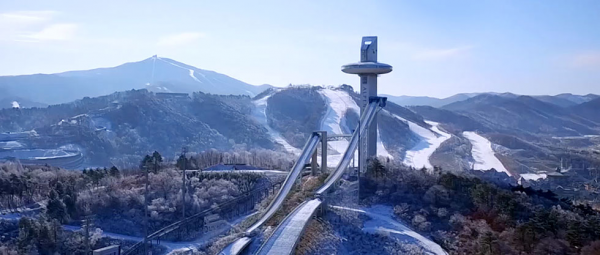Nam Center Colloquium Series | From 1988 Seoul to 2018 Pyeongchang: What Have We Learned in Hosting Mega Events?
Dae Hee Kwak, Associate Professor, School of Kinesiology, University of Michigan
If hosting a mega sport event is a measure of success in the sport system of a nation, South Korea is one of sport powerhouses that have hosted both the Summer and Winter Olympics, the FIFA World Cup, and the IAAF World Championships (track and field event). Hosting cities often experience drastic makeovers with an enhanced civic infrastructure but also are left with white elephant stadiums and huge debt. Pyeongchang is no exception. While the 1988 Seoul Olympics were a resounding success with millions of South Koreans attending events and tuning in on television, critics concern that the Pyeongchang Games will not receive such national support. The Pyeongchang Olympics Organizing Committee (OOC) has been struggling with slow ticket sales and lack of enthusiasm from the public. Geopolitics and escalating tensions with North Korea aside, I will review other reasons for the lack of interest. In addition, I will briefly review the development of sport system in Korea between the two Olympics and lessons we can learn from hosting the Winter Games.
Dae Hee Kwak is an Associate Professor of Sport Management in the School of Kinesiology. His research focuses on sport consumer behavior and consumer psychology. He has published in numerous articles in sport management and marketing outlets and recently co-edited a book "Sport in Korea: History, Development, Management" (Routledge). He is currently the director of the Center for Sport Marketing Research at the University of Michigan.
Dae Hee Kwak is an Associate Professor of Sport Management in the School of Kinesiology. His research focuses on sport consumer behavior and consumer psychology. He has published in numerous articles in sport management and marketing outlets and recently co-edited a book "Sport in Korea: History, Development, Management" (Routledge). He is currently the director of the Center for Sport Marketing Research at the University of Michigan.
| Building: | Weiser Hall |
|---|---|
| Event Type: | Lecture / Discussion |
| Tags: | Asia, Kinesiology |
| Source: | Happening @ Michigan from Nam Center for Korean Studies, International Institute, Asian Languages and Cultures |


